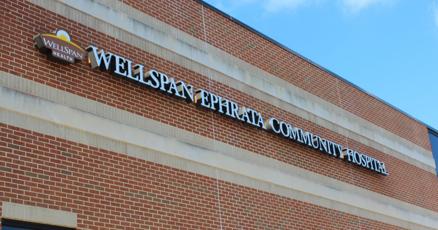Measles Alert: Confirmed Case Surfaces at WellSpan Ephrata, Health Officials Warn

A potential public health alert has been issued after a confirmed measles case in Pennsylvania. The state's Department of Health announced on Sunday that an infected patient had visited WellSpan Ephrata Community Hospital during the past week, raising concerns about potential exposure.
Health officials are urging anyone who may have been at the hospital during the patient's visit to monitor their health closely and contact medical professionals if they develop any symptoms associated with measles. The highly contagious viral infection can spread quickly in public spaces, making early detection and prevention crucial.
Measles is characterized by a distinctive red rash, high fever, and potential complications that can be serious, especially for young children and individuals with weakened immune systems. The Pennsylvania Department of Health is working to trace potential contacts and prevent further transmission of the virus.
Residents are advised to ensure their vaccinations are up to date and to seek immediate medical attention if they suspect they may have been exposed to the measles virus.
